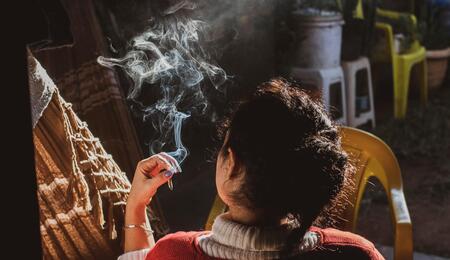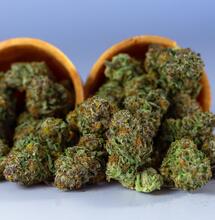Why Legalize Marijana and Allow Cannabis Plants for Homegrowing?

Should your state legalize marijuana and allow cannabis plants to be homegrown? Let’s weigh the pros and cons. In recent years, many states have legalized marijuana for medical use, recreational use, or both. But still, recreational possession, selling, or use of cannabis is considered a federal and a criminal offense in other states.
Marijuana legalization opponents believe that legalizing marijuana and allow cannabis plants to be homegrown will encourage illegal drug use among teenagers. Critics also fear that legalization may lead to a spike of medical problems, road accidents, or deaths. Another argument is that marijuana is physically and psychologically harmful to users, so its consumption should be strongly prohibited. Read more about some basic facts about marijuana here.
The Pros of Marijuana Legalization
Legalization of Marijuana Can Actually Stimulate the Economy
The U.S. marijuana industry (individual-use, recreational, and clinical) could increase nationwide revenues of up to US$ 24 billion by 2025 if states proceed to entirely legalize marijuana. According to the nonprofit public charity ProCon.org, for every $1 invested in the marijuana industry, between $2.13 and $2.40 in economic activity can be generated. Should U.S. states legalize marijuana, this could bolster various sectors, including tourism, banking and commerce, food and commodities, real estate, building and transportation.
Legalization of Marijuana May Lessen Use Among Adolescents
According to researchers, marijuana use among U.S. teens has been decreasing, amid a growing trend of marijuana use among adult populations following marijuana legalization in more U.S. states. Some of the numbers below speak for themselves:
- Marijuana use among eighth-graders in Washington State fell from 9.8% to 7.3% in 2014/2012 following legalization.
- A study conducted by the Centers for Disease Control (CDC) showed that marijuana use declined from 15.8% in 2002 to 13.1 percent in 2014, among U.S. children aged 12 to 17.
- According to the National Survey on Substance Use and Safety, Colorado teens aged 12 to 17 reported a decrease in marijuana use of nearly 12 percent in just two years. That is, immediately after adult-use was legalized.
If Marijuana is Legal, Fatalities in Traffic May Actually Decrease
In states that allow medical marijuana, traffic fatalities dropped by 11 percent on average. In Washington and Colorado, convictions for driving under the influence have declined. Benjamin Hansen, an economics professor at Eugene's University of Oregon who has studied the relation between medical marijuana legalization and traffic fatalities, has told Reuters that “Public safety doesn’t decrease with increased access to marijuana, rather it improves.” Reports show that marijuana-affected drivers appeared to be more vigilant and took less risk than drunk drivers. They made fewer lane changes and drove at a slower speed.
From ‘Legalize Marijuana’ to Increased Public Safety and Health
Customers who purchase marijuana on the street have no way of knowing that mold, fungi, pesticides, or other toxic substances may contaminate what they are ingesting. Once marijuana is legal and states allow cannabis plants to be grown, the government can do laboratory testing and legislation to ensure that sold cannabis is free of toxins.
For example, the Washington law includes cannabis health alerts, quality control, THC concentration labeling, and other essential cannabis consumer regulations. So regulated nugs indeed mean healthier nugs, better for consumers’ lungs, and generally safer for all folks who appreciate consuming. On this link, you can get acquainted with some of the best cannabis strains as selected last year.
Marijuana Legalization Discourages Illegal Trades
Marijuana illegal trades have been repeatedly associated with drug cartels and street gangs, and their pipelines to distribute any drugs have been far-fetching. However, data from the U.S. Border Patrol indicates that marijuana raids have dropped. As of recently, raids are at their lowest rates, suggesting that legal domestic cultivation is reducing demand for illegal marijuana. Illegal sources include U.S. neighbor countries.
A Mexican cannabis farmer reportedly told NPR, "If the U.S. wants to legalize marijuana, this will push us down to the bottom." According to the American Civil Liberties Union (ACLU), legalization in Colorado and Washington has allegedly cost Mexican drug cartels an estimated $2.7 billion of loss in income.
Prohibiting Marijuana May Highlight a Racial Disparity
Disturbing enough, statistics suggest that there are some significant differences in how drug laws concern people of different races. While there is no significant difference in the rates of drug users among different race groups in the U.S., African Americans are still 3.73 times more likely to be arrested for marijuana possession, reports ACLU.
ACLU data refers to the period between 2001 and 2010. ACLU data further reveals that in Iowa, D.C., Minnesota, and Illinois, African Americans are between 7.5 to 8.5 times more likely to be arrested for marijuana possession than white Americans. In New York City in 2016, 15.8% of cases for weed possession involving white Americans concluded with convictions. That is a figure that contrasts with the 32.3% of cases involving African Americans or 30% of cases involving Hispanic Americans that also ended with convictions there.
Crime Rates Drop Once You Legalize Marijuana
Studies show that medical marijuana dispensaries have minimized crime in their communities due to an increased presence of police and more people walking around the area. Also, evidence indicates that people drink less, and sales of alcohol decline in countries where marijuana is legalized. The amount of drug-related abuse and violence is ten times greater than marijuana-related use. Plus, illegal drugs is a factor in about 40 percent of violent crimes.
A change from drinking alcohol to using cannabis would minimize alcohol-related crimes such as domestic abuse and assault. Violent crime in Washington has dropped in the years following legalization, according to FBI crime statistics. If there were 295.6 violent offenses registered per 100,000 Washington citizens in 2011, the figure fell to 284.4 violent crimes per 100,000 people in 2015.
Legalizing Marijuana Can Help Save Gov. Funds
Implementing laws against marijuana is expensive, as this requires additional police resources, as well as additional lab work to determine that the substance really is marijuana. Arresting individuals for possession of marijuana costs the United States billions of dollars every year. Such costs include expenses related to police, administrative, legal, and corrections. Confining marijuana offenders to jail annually costs the U.S. roughly an additional $600 million.
Harvard economist Jeffrey Miron predicts that legalizing marijuana could save anywhere between $7.7bn and $13.7bn a year. Finally, instead of arresting people for marijuana, police officers can have more time to concentrate on serious crimes like rape, assault, and murder. Plus, they will have more resources in their hands. For example, the legalization of marijuana in Washington has helped to significantly expand resources for law enforcement as arrests of marijuana possession fell from 5,531 in the year before legalization, to 120 in the year after. That is 2013, the first full year after the passage of the Washington Initiative 502 (I-502) on marijuana reform.
Legalize Marijuana & Allow Cannabis Plants Homegrowing
Marijuana legalization supporters claim it will add billions to the industry. This will generate hundreds of thousands of new jobs, free up scarce enforcement assets, and reverse the vast racial inequalities in drug policy. If states legalize marijuana and allow cannabis plants to be grown, it can minimize street crime, and take away profits from drug cartels. All of that can happen while making marijuana usage safe by enforcing monitoring, labeling, and child-proof packaging. They say marijuana is much less dangerous than alcohol, and if they so desire, adults should have the right to use it.



